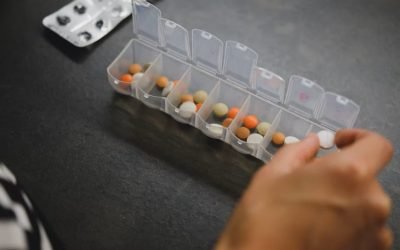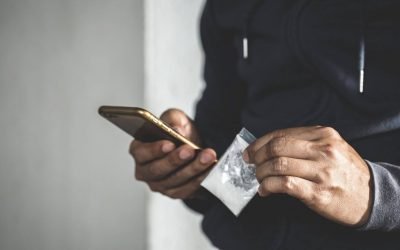Gambling addiction, also known as problem gambling, is a serious mental health condition that can have devastating effects on an individual’s life. It is a progressive disorder characterised by an uncontrollable urge to gamble, despite the negative consequences it may have on one’s finances, relationships, and overall well-being. Gambling addiction is a complex issue that affects people from all walks of life, and it is essential to understand the underlying causes, symptoms, and impact of this disorder. In this comprehensive guide, we will delve into the various aspects of gambling addiction, including its signs and symptoms, causes and risk factors, the impact on mental health and relationships, the financial consequences, and the available treatment options and support resources. By understanding the complexities of this addiction, individuals, families, and communities can better address this pressing issue and work towards recovery and prevention. 
Signs and Symptoms of Gambling Addiction
Recognising the signs and symptoms of gambling addiction is crucial for early intervention and effective treatment. Some of the common indicators of a gambling problem include:
- Preoccupation with gambling: The individual spends an excessive amount of time thinking about, planning, or engaging in gambling activities.
- Increased gambling frequency and intensity: The individual gradually increases the amount of time and money spent on gambling, often chasing losses.
- Restlessness or irritability when attempting to cut back or stop gambling: The individual experiences withdrawal-like symptoms when trying to reduce or quit gambling.
- Lying about gambling activities: The individual attempts to hide or downplay the extent of their gambling from family, friends, or colleagues.
- Neglecting other responsibilities: The individual prioritizes gambling over work, family, or social obligations, leading to a decline in performance or participation in these areas.
- Relying on others for financial assistance: The individual may borrow money or rely on others to bail them out of financial difficulties caused by gambling.
- Emotional instability: can lead to mood swings, anxiety, depression, and other emotional disturbances.
It is important to note that not all individuals with a gambling problem will exhibit all of these symptoms, and the severity of the addiction can vary. However, the presence of multiple signs should be a cause for concern and prompt the individual to seek professional help.
Causes and Risk Factors
The development of gambling addiction is a complex process that involves a combination of genetic, psychological, and environmental factors. Some of the key causes and risk factors include:
- Genetic predisposition: Research suggests that individuals with a family history of gambling addiction or other addictive disorders may be more susceptible to developing a gambling problem.
- Personality traits: Certain personality characteristics, such as impulsivity, sensation-seeking, and risk-taking, have been linked to an increased risk of gambling addiction.
- Mental health issues: Conditions like depression, anxiety, and bipolar disorder can contribute to the development of addiction as individuals may use gambling as a coping mechanism.
- Availability and accessibility of gambling opportunities: The widespread availability of casinos, online gambling platforms, and other gambling venues can increase the likelihood of developing a gambling problem.
- Social and cultural influences: Peer pressure, social norms, and cultural acceptance of gambling can all play a role in the development of addiction.
- Cognitive distortions: Individuals with an addiction may hold irrational beliefs about their ability to control or predict the outcome of gambling activities, leading to a false sense of control and increased risk-taking.
Understanding the underlying causes and risk factors is crucial for developing effective prevention and treatment strategies for gambling addiction.
Impact on Mental Health
Gambling addiction can have a profound impact on an individual’s mental health, often leading to a range of psychological and emotional issues. Some of the common mental health consequences include:
- Depression: Individuals with an addiction are at a higher risk of developing clinical depression, which can manifest in symptoms such as persistent sadness, hopelessness, and loss of interest in daily activities.
- Anxiety: addiction can trigger feelings of anxiety, worry, and stress, as individuals become preoccupied with the financial and social consequences of their gambling behaviour.
- Suicidal ideation: addiction has been linked to an increased risk of suicidal thoughts and attempts, particularly when individuals are facing significant financial and emotional turmoil.
- Substance abuse: Individuals may turn to alcohol or drugs as a way to cope with the negative emotions and stresses associated with their gambling behaviour.
- Relationship problems: Addiction can strain and even destroy personal relationships, as the individual’s focus on gambling takes priority over their responsibilities and commitments to family and friends.
Addressing the mental health implications of gambling addiction is crucial for a comprehensive recovery process. Mental health professionals, such as therapists and counselors, play a vital role in providing the necessary support and treatment to help individuals overcome the psychological and emotional challenges associated with this disorder.
Effects on Relationships
Gambling addiction can have a devastating impact on an individual’s personal relationships, leading to strained or severed connections with family members, friends, and romantic partners. Some of the common effects of gambling addiction on relationships include:
- Betrayal and loss of trust: Individuals often lie about their gambling activities, leading to a breakdown of trust and a sense of betrayal among their loved ones.
- Financial strain and conflict: The financial consequences, such as debt and financial instability, can create significant tension and conflict within the family.
- Neglect and emotional distance: Individuals with an addiction may prioritize their gambling activities over spending quality time with their loved ones, leading to emotional distance and a lack of support.
- Domestic violence and abuse: In some cases, addiction can contribute to an increased risk of domestic violence and abuse, as the stress and financial pressures can lead to aggressive or abusive behaviour.
- Relationship breakdown and divorce: Gambling addiction can ultimately lead to the dissolution of marriages and other long-term relationships, as the negative consequences become too overwhelming to overcome.
Addressing the relational impact of gambling addiction is crucial for the recovery process, as rebuilding trust and strengthening family and social connections can be essential for long-term success. Counseling and support groups can help individuals and their loved ones navigate the challenges and work towards healing and restoration.
Financial Consequences of Gambling Addiction
Gambling addiction can have severe financial consequences, often leading to a downward spiral of debt, financial instability, and even bankruptcy. Some of the common financial effects of gambling addiction include:
- Accumulation of debt: Individuals with an addiction may incur significant debts through borrowing money, using credit cards, or taking out loans to fund their gambling activities.
- Depletion of savings and assets: Individuals may exhaust their personal savings, retirement funds, or other assets in an attempt to recoup their gambling losses.
- Inability to meet financial obligations: Addiction can lead to an inability to pay rent, utilities, or other essential bills, resulting in further financial difficulties.
- Job loss and employment instability: Individuals with gambling addiction may experience decreased productivity, absenteeism, or even job loss, further exacerbating their financial troubles.
- Legal consequences: In some cases, individuals may resort to illegal activities, such as theft or fraud, to fund their gambling, leading to potential legal consequences and criminal records.
The financial impact of gambling addiction can be devastating, not only for the individual but also for their family members and loved ones. Addressing the financial consequences is a crucial aspect of the recovery process, and it often requires the assistance of financial counseling, debt management services, and other support resources.
Treatment Options for Gambling Addiction
Gambling addiction is a treatable condition, and there are several evidence-based treatment options available to help individuals overcome this disorder. Some of the most common treatment approaches include:
- Cognitive-Behavioral Therapy (CBT): CBT helps individuals identify and modify the negative thought patterns and behaviours that contribute to their addiction.
- Medication-assisted treatment: In some cases, medications like antidepressants or mood stabilizers may be prescribed to help manage the underlying mental health issues associated with addiction.
- Residential or inpatient treatment: For individuals with severe addiction, residential or inpatient treatment programs may be recommended, providing a structured and supportive environment for recovery.
- Outpatient treatment: Outpatient treatment programs, such as individual or group therapy sessions, can be effective for individuals who do not require the intensity of a residential program.
- Support groups: Participation in support groups, such as Gamblers Anonymous, can provide individuals with a sense of community, accountability, and peer-to-peer support during the recovery process.
It is important to note that the most effective treatment approach often involves a combination of these methods, tailored to the individual’s specific needs and circumstances. Seeking professional help from a qualified mental health or addiction treatment provider is crucial for achieving long-term recovery from gambling addiction.
Support Groups and Resources
In addition to professional treatment options, there are various support groups and resources available for individuals struggling with gambling addiction and their loved ones. These include:
- Gamblers Anonymous (GA): A 12-step program that provides peer support and a structured approach to recovery for individuals with addiction.
- National Problem Gambling Helpline: A confidential, 24-hour hotline that provides information, referrals, and support for individuals and their families affected by addiction.
- Online support forums and communities: Various online platforms offer a safe and anonymous space for individuals to connect with others facing similar challenges and share their experiences.
- Family and relationship counseling: Specialized counseling services can help families and loved ones navigate the challenges of supporting an individual with addiction.
- Financial counseling and debt management services: These resources can assist individuals in addressing the financial consequences of their gambling addiction and developing strategies for financial recovery.
Accessing these support groups and resources can be a crucial step in the recovery process, providing individuals with the tools, guidance, and community they need to overcome the challenges of gambling addiction.
Conclusion – Seeking Help and Recovery
Gambling addiction is a complex and multifaceted disorder that can have devastating consequences on an individual’s life, relationships, and financial well-being. However, it is essential to remember that addiction is a treatable condition, and with the right support and resources, individuals can overcome this challenge and achieve long-term recovery. If you or someone you know is struggling with gambling addiction, it is crucial to seek professional help and access the available support resources. By addressing the underlying causes, managing the mental health and relational impacts, and addressing the financial consequences, individuals can take the necessary steps towards a fulfilling and addiction-free life. Don’t struggle alone. Reach out to a qualified mental health professional or join a support group to start your journey towards recovery from gambling addiction. Your well-being and future are worth the effort.
About Hacienda Paradiso: Gambling Addiction
At Hacienda Paradiso we believe in a safe and healing environment with a mixture of therapeutic and holistic therapies in the natural surroundings of nature. There is an answer for everything and we find the solution. Each and every person is different, so each addiction is too. We are able to help you because we adapt all our expertise to your personal situation – with the pure and simple aim of achieving a lifetime of recovery.
Thank you for reading: What does a gambling addiction look like?








